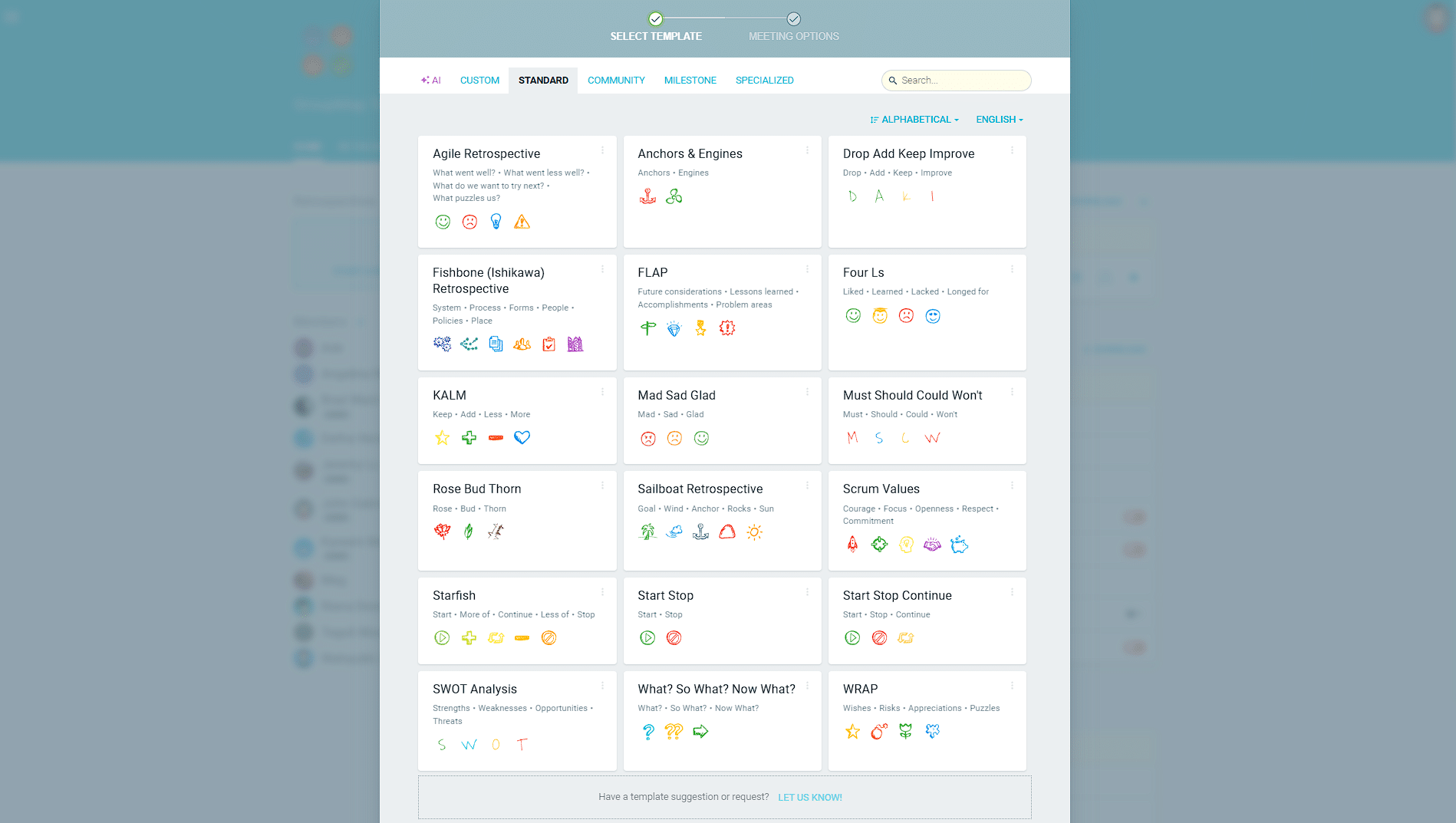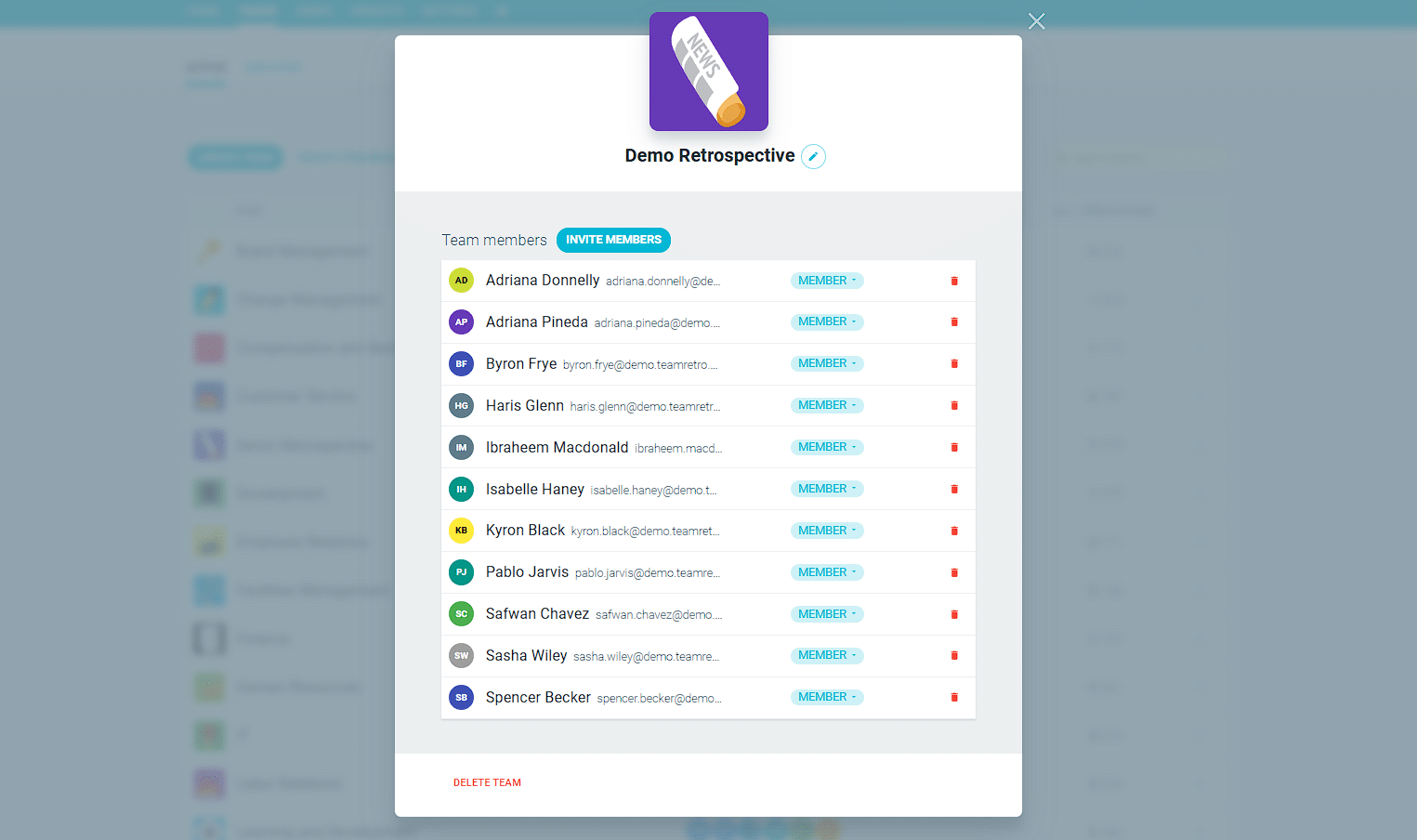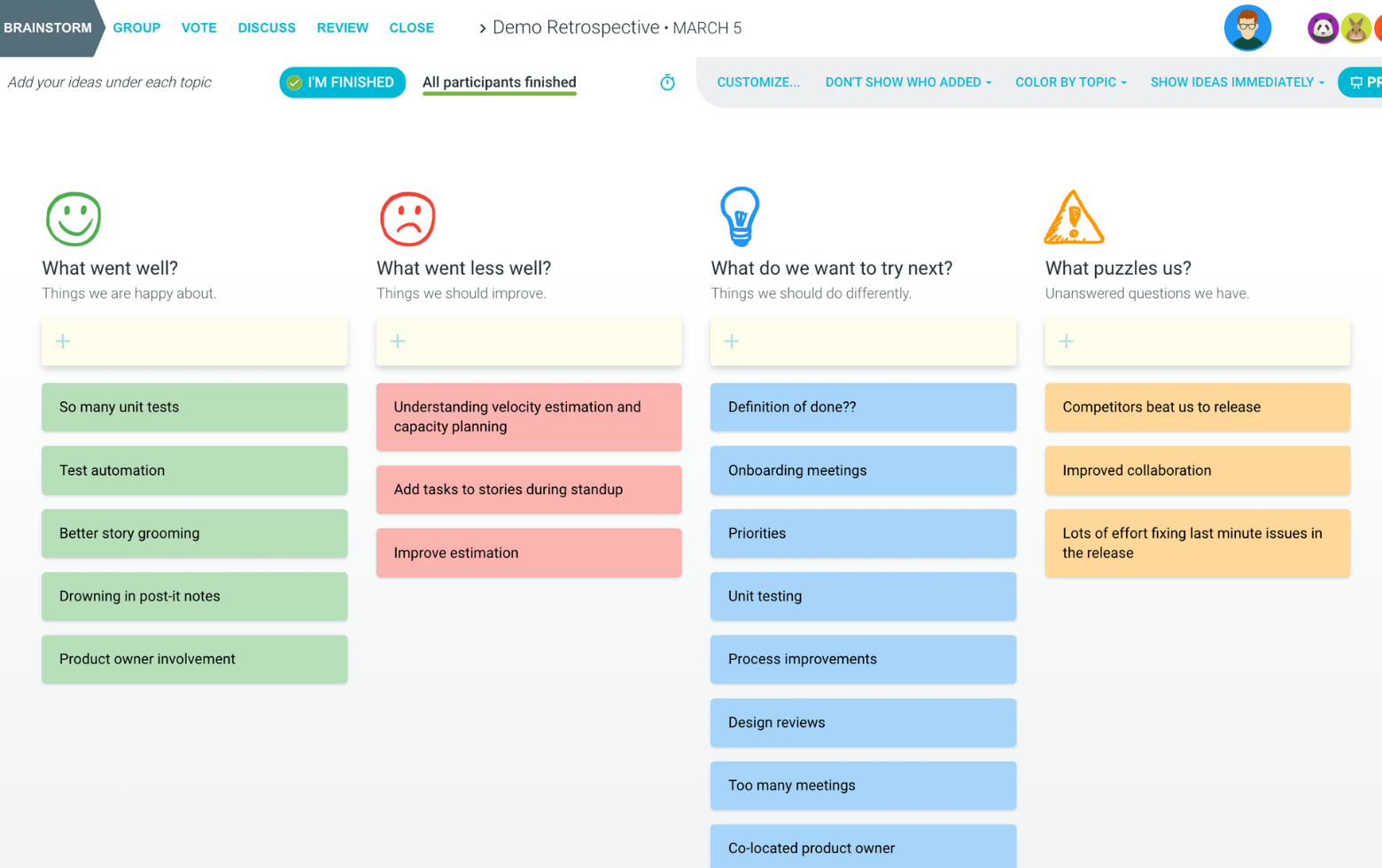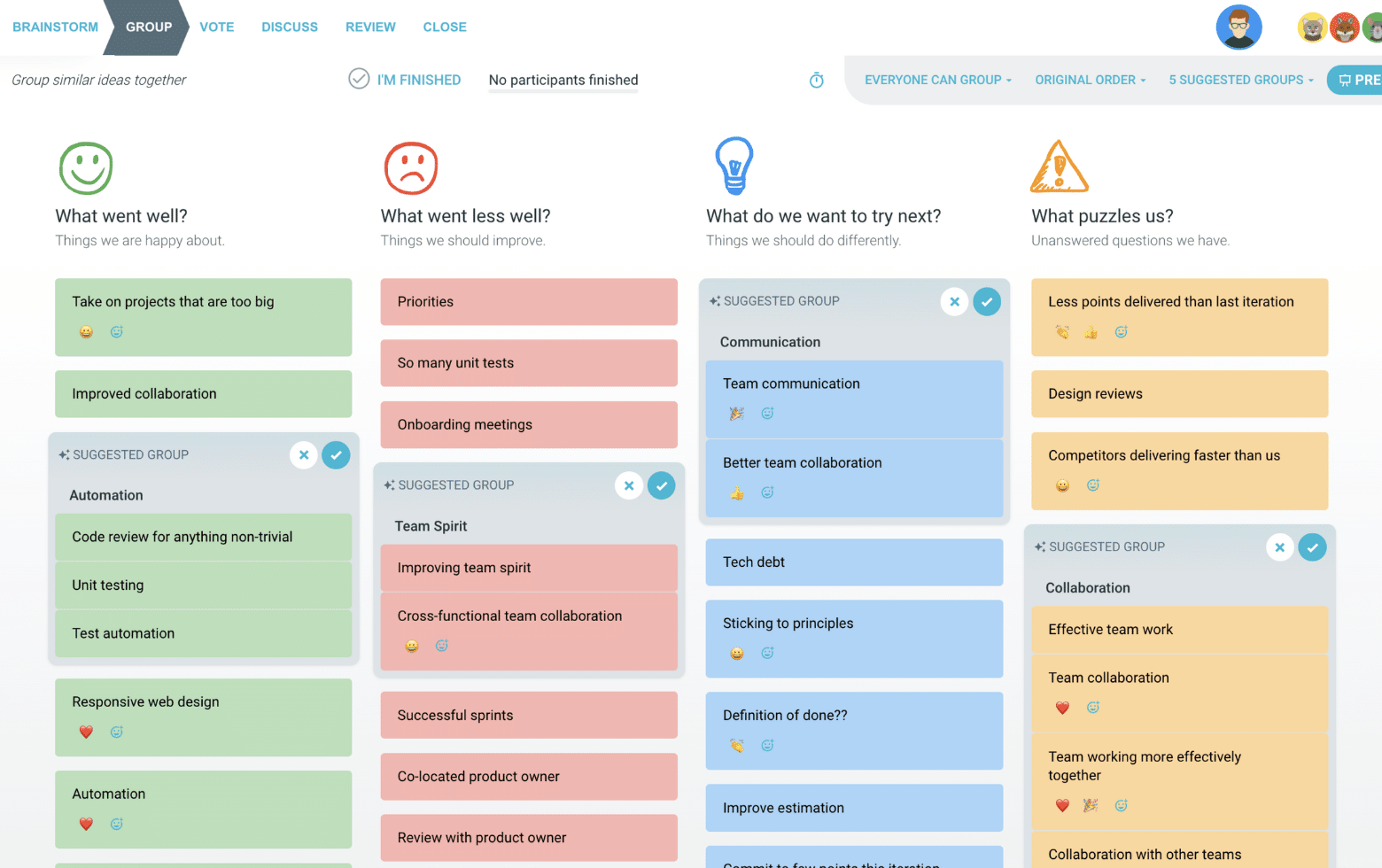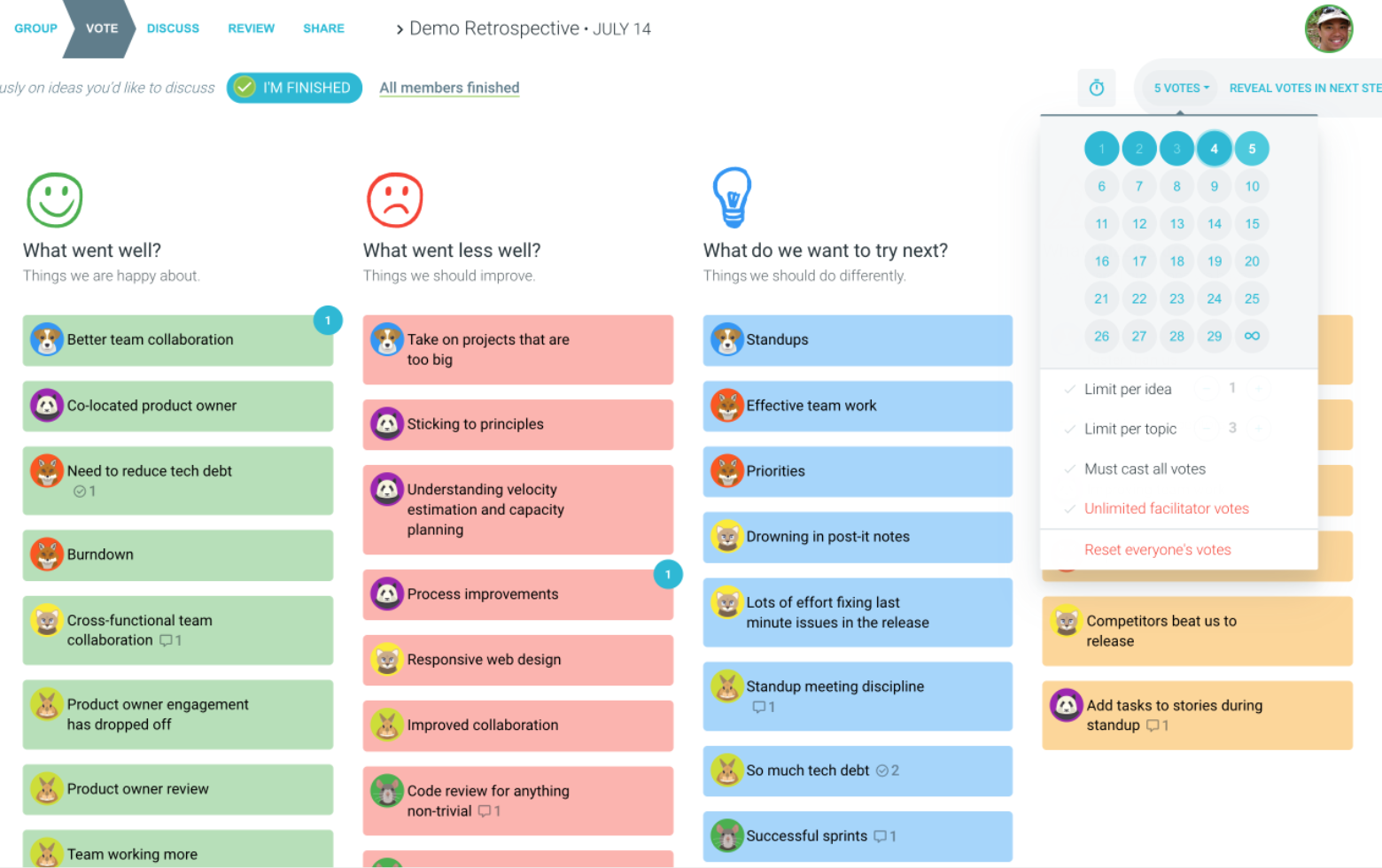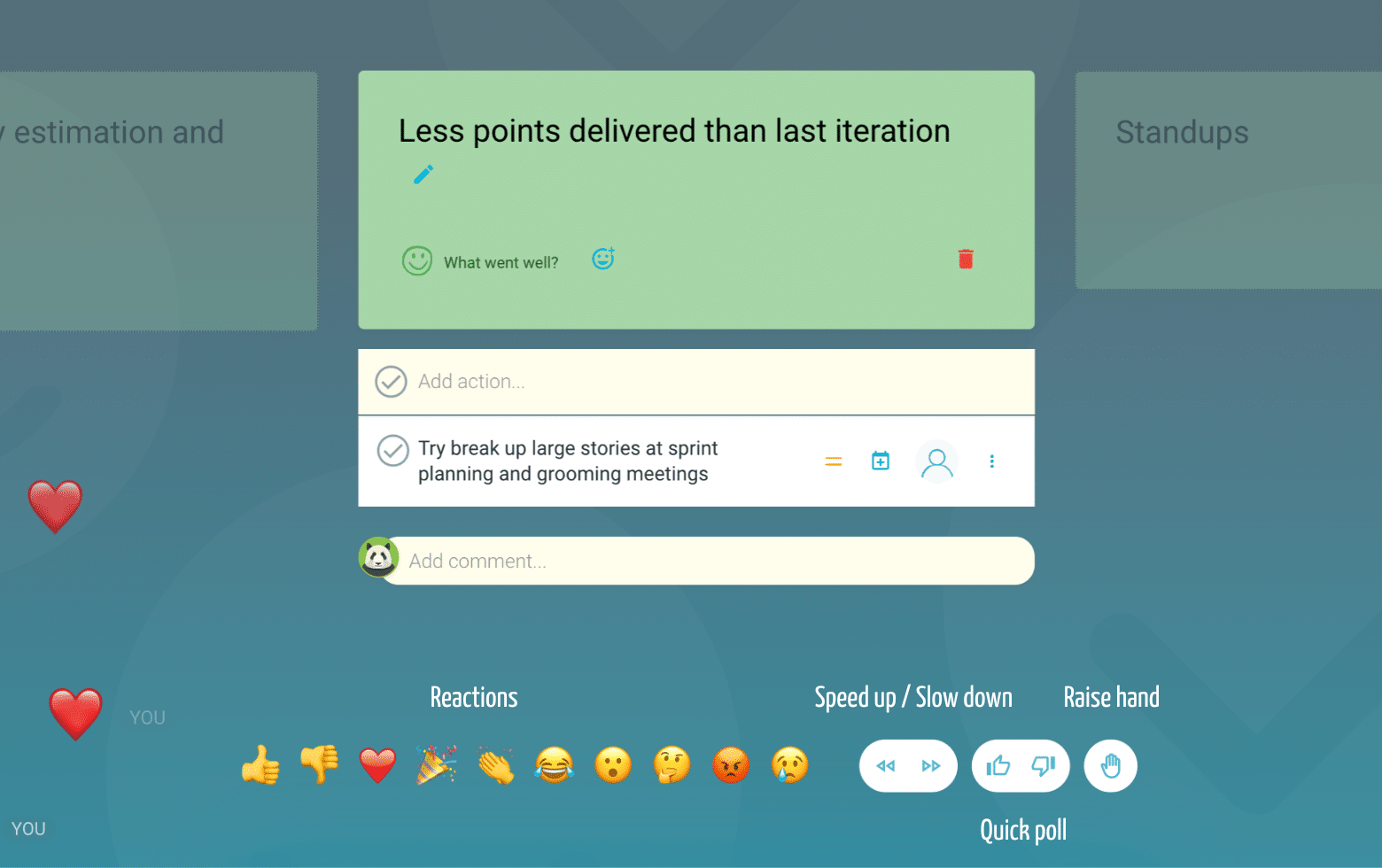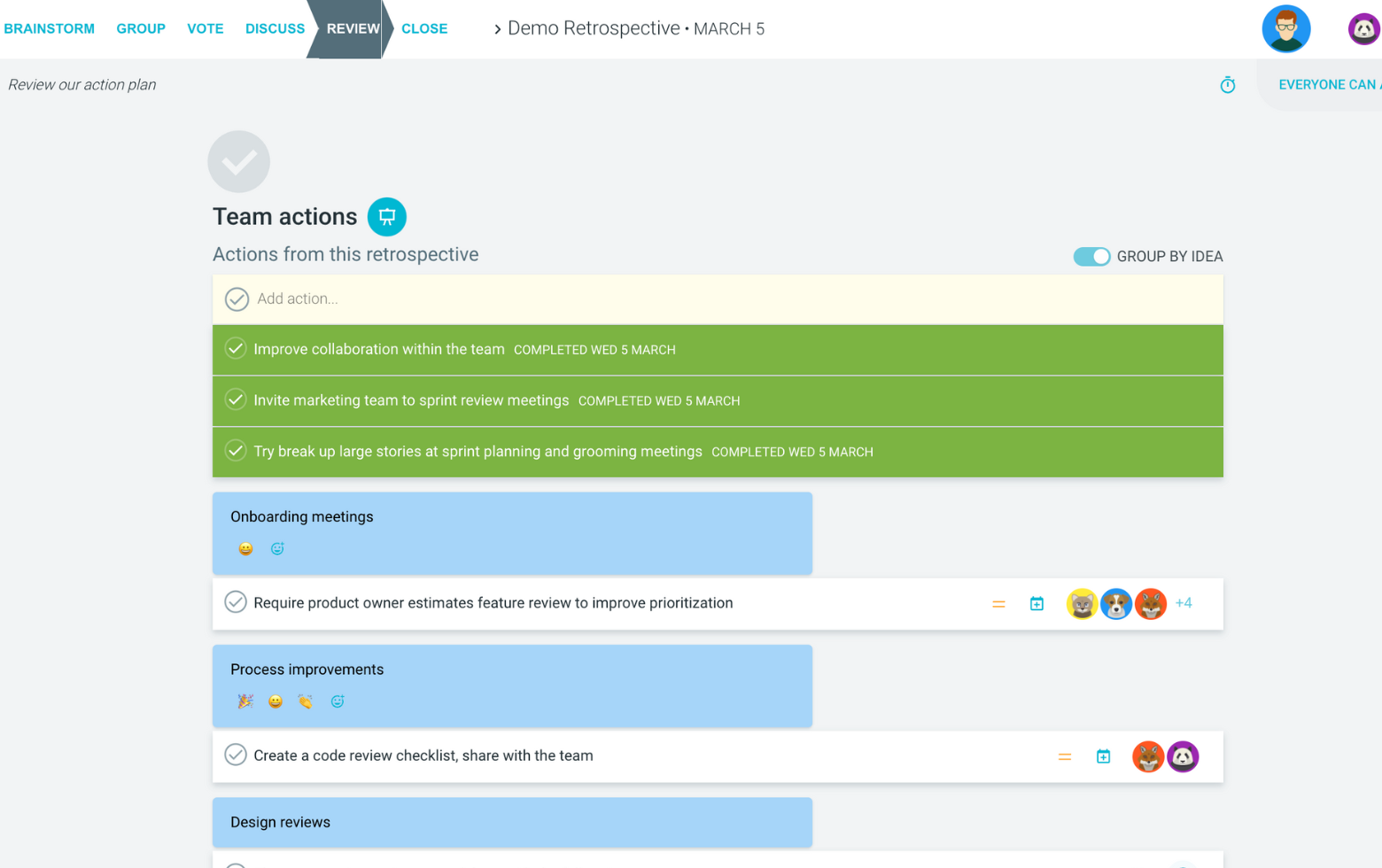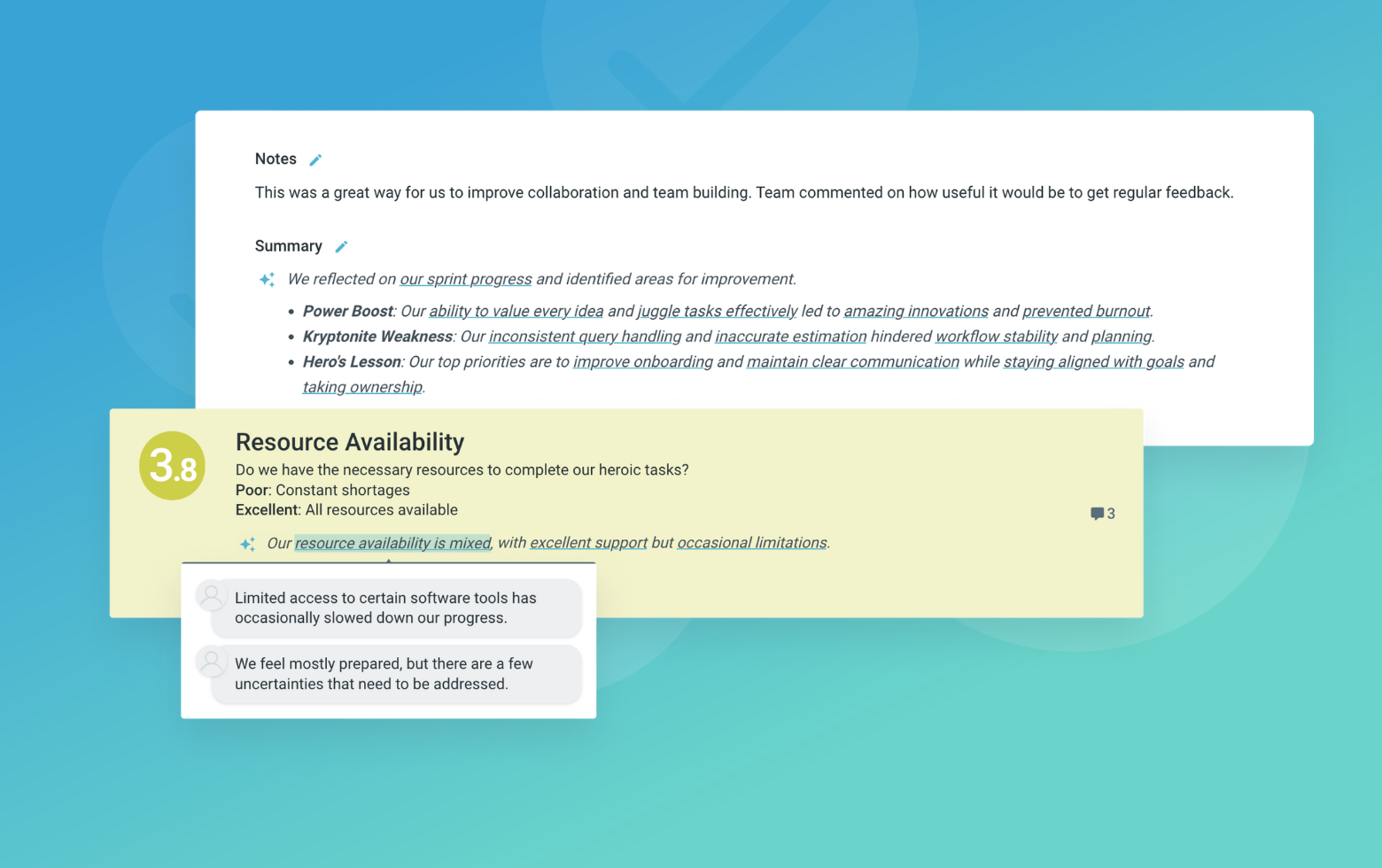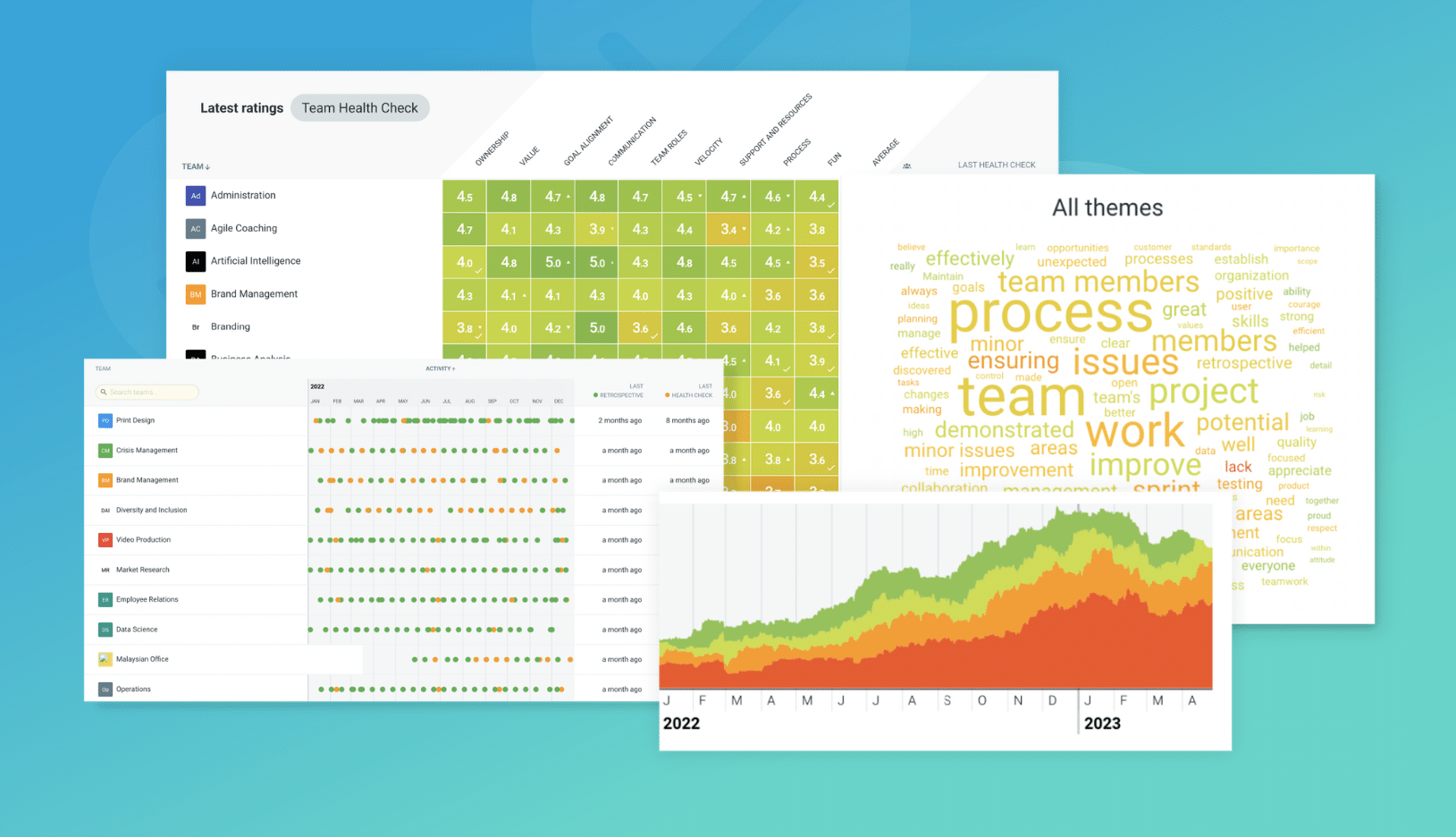A content strategy retrospective is a structured meeting where teams reflect on their content planning, creation, and distribution processes. It provides an opportunity to identify areas for improvement, celebrate successes, and align on future goals.
This retrospective template is designed to facilitate open discussions around content strategy, including topics like audience engagement, content quality, channel effectiveness, and workflow optimization. By fostering honest feedback and collaboration, teams can refine their content strategy to better resonate with their target audiences and drive desired outcomes.
What is The Content Strategy Retrospective
Audience Engagement
How well did our content resonate with our target audiences?
Audience engagement is a crucial aspect of content strategy. This topic allows teams to evaluate how effectively their content connected with their intended audiences. Facilitators should encourage participants to share data-driven insights, anecdotal feedback, and personal observations regarding audience interactions, content consumption metrics, and overall resonance. Discussions should cover factors that contributed to successful engagement as well as areas where improvements could be made.
Content Quality
How well did our content meet quality standards and expectations?
Content quality is essential for building trust, credibility, and long-term audience loyalty. This topic encourages teams to critically evaluate the quality of their content across various dimensions, such as accuracy, depth, relevance, and adherence to brand guidelines. Facilitators should guide discussions around factors that contributed to high-quality content, as well as areas where quality fell short. Participants should also explore ways to consistently maintain and improve content quality standards.
Channel Effectiveness
How effective were our content distribution channels?
Effective content distribution is crucial for reaching the right audiences at the right time. This topic encourages teams to evaluate the performance of their various content distribution channels, such as social media, email, search engines, and partner networks. Facilitators should guide discussions around channel-specific metrics, audience preferences, and potential opportunities for optimization or expansion. Participants should share insights on which channels performed well and which may require adjustments or additional resources.
Workflow Optimization
How can we improve our content planning and creation processes?
Efficient and streamlined workflows are essential for consistently delivering high-quality content on time. This topic encourages teams to identify bottlenecks, redundancies, or areas of friction in their content planning and creation processes. Facilitators should guide discussions around potential process improvements, resource allocation, and collaboration strategies. Participants should share their experiences and insights on what worked well and what could be optimized for greater efficiency and productivity.
Suggested icebreaker questions
- If our content strategy was a movie, what genre would it be and why?
- Share a recent piece of content (from any source) that you found particularly engaging or memorable, and explain what made it stand out.
Ideas and tips for your retrospective meeting
- Encourage open and honest feedback by creating a safe, judgment-free environment.
- Use data and metrics to support observations and insights, but also value qualitative feedback and personal experiences.
- Assign a dedicated note-taker to capture key discussion points and action items.
- Involve cross-functional team members and stakeholders to gather diverse perspectives.
- Balance constructive criticism with celebrating successes and recognizing team efforts.
- Prioritize actionable takeaways and assign owners for follow-up tasks or process improvements.
.
How to run effective meetings with TeamRetro
Start Your Session in a Click
Log into TeamRetro and choose your template. Customise questions and the workflow to create your perfect retro for your team.
Create Your Team Easily – No Separate Accounts Needed
Brainstorm Individually – Free From Bias
Smart Grouping for Faster Insights
Fair, Flexible, and Fast Voting
Engage, React, and Capture Key Insights
Walk your team through ideas one by one with Presentation Mode. Stay in sync, spark real-time discussions, and capture feedback with comments, live reactions, and polls—all in one place.
Turn Ideas Into Action
Propose next steps with team buy-in, get AI-powered action suggestions, and keep everything in one place. Committed actions sync to your personal dashboard and integrate with your workflow tools—keeping you on track.
Save, Share, and Stay on Track
Get quick AI-powered summaries, add facilitator notes, and store retrospectives in your library for easy access. Schedule your next session and track published actions to keep your team accountable at the next retro.
Turn Team Data into Actionable Insights
Uncover trends, common themes, and key engagement metrics at a glance. Track sentiment shifts, analyze conversations, and monitor completed actions to drive continuous improvement.
